New year, new staff: Meet your new teachers, part 3 & 4
Annie Huynh, Latin teacher
by Lee Wilcox
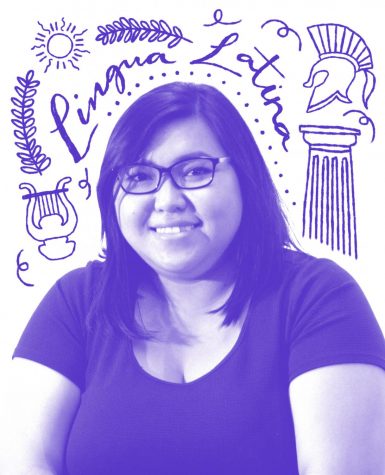
Latin teacher Annie Huynh originally hated the dead language, but developed a fierce passion for it as time went on. A former student teacher at SF State and bona fide Latin scholar, she also enjoys rescuing cats.
What were your favorite subjects in high school?
Believe it or not, when I first started taking Latin in High School, I hated it. And here I am, so things change. When I first took it, I actually thought it was incredibly silly that someone would be learning a, so-called “dead language.” And somewhere between that and the second month of school, things changed. So, Latin was my favorite subject. It became my favorite subject, but I also really enjoyed English, I really enjoyed physics, world history was fun. I just didn’t like math, basically.
What are the challenges and rewards of teaching?
Teaching is really hard is what I’m beginning to realize. More now that I’m actually in a classroom. It’s pretty difficult because you have students coming from all different levels, and you have to really find a way to engage them. Also, in particular, Latin has its own challenges. No one speaks Latin, which can be a good or a bad thing, because that means none of my students have to speak the language, ever. So that’s one thing that’s kind of eliminated from the language class. But, it’s also an extremely difficult language to learn. The grammar is very, very difficult, but it’s good because every single time a student recognizes something, or it “clicks,” you see it, and it’s amazing. And then when a student tells you that they’re enjoying what they’re doing, that’s a huge one because, I get it: You’re in high school and you have to take a certain number of classes, you have to take a certain number of language classes, so there’s no getting out of it. So when a student genuinely cares and genuinely is excited to learn, that’s a pretty big deal.
What’s your impression of Lowell so far?
Lowell is a fascinating place. The students are very high-achieving and very serious students, they work very hard. There’s no shortage of hard work in my class, that’s for sure, but I always try to make my class is fun. Because it’s a language, it really shouldn’t be something that you’re dreading. Learning a language should be fun, and I try to make it so that my classroom is a stress-free environment. I just feel like every single day I see so much stress on my student’s faces, so I would hope my class isn’t adding to that. But everyone here just works incredibly hard, and I’ve never seen that environment before so it’s really fascinating for me to watch the students function. And, of course, with all that hard work, I think you students are afforded quite a few freedoms. You’re able to choose what you want for your classes, and you have a lot of power over your own education and that is just the most incredible thing that the school’s allowing you to do.
What’s your most memorable moment as a teacher?
Trying to come up with answers for my students when sometimes the answers are really difficult. So, in Latin, I feel like in every other language you learn how to say things like, “How are you,” “Happy Birthday,” “Good Morning,” and basic phrases the first two weeks of school. Almost immediately in Latin, one of the first words you learn is the word for Slave. And for this environment in particular, San Francisco, it’s a sensitive topic, so trying to explain where I’m coming from with this was a little bit awkward at first. But then understanding the cultural context behind it, and understanding, from a cultural point of view, it sets up the conversation to compare how different the concept of slavery was in ancient Rome as compared to our own society. We have a very different connotation of what slave means versus what the ancient Romans believed it to be. Slavery here was racial, and slavery in Roman times was not. It was if you were conquered, you were a slave. That was the context of it. And once I came up with that explanation it just clicked in their heads and the students became much more accepting of the idea. Something like that is really a good reason to teach. Just trying to understand another person’s culture and trying to understand what another group of people are thinking, and especially in this case, a group of people that don’t exist anymore.
What are your passions outside of teaching?
I would say I read lots of of Latin and Ancient Greek, and that is basically what I do. I’m in a very lucky position that my career is something that is also my passion. It’s what I did my bachelor’s in and it’s what I did my Master’s in. It’s incredibly interesting, and that’s why I’m passionate about my job. That and cat rescue. I work for a rescue, I foster cats, and I think cats are great. That’s my two things: classics and cats.
Ana Maldonado, history teacher
by Kate Green
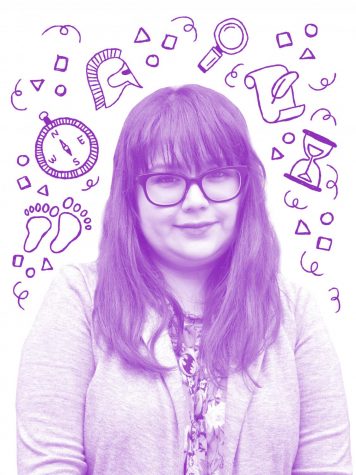
Modern World and U.S. History teacher Ana Maldonado has always been fascinated by social studies. A San Francisco born and raised “proud Chicana,” she considers history the tool for radicalism and a beautiful way to understand and appreciate other people’s cultures. Upon graduating from John O’Connell high school, Maldonado initially dipped her toes into the field of psychology, earning her B.A. in child and adolescent development at the University of San Francisco. She grappled with the choice of becoming an educator versus a therapist and eventually decided to pursue teaching, settling in at Paul Revere (K-8) for four years prior to arriving at Lowell. Outside of school, she is an avid traveler, especially cherishing her visits to Mexico.
What led you to become a teacher?
For me, school wasn’t the most positive experience. The language barrier was very difficult. I did not get my dual immersion education until fourth grade and, prior to that, it was all Spanish, so it was very difficult as an ESL student. There were some great teachers, and there were some teachers I wish helped me a little bit more. So, I thought to myself, “Why not become an educator to help students out?” because I understand the struggle .
What have been some of the rewards and challenges of your career thus far?
In general, the fun and exciting part of teaching is when you see students have those “aha moments.” You can see them thinking and the wheels turning in their brains as they get excited about learning. I think that’s great. The challenges of being a teacher are obvious. You have so much grading and so much work to make sure your students are being challenged and adapting to the differentiation of all these learning styles. So that sometimes can be a challenge.
You’ve mentioned you enjoy traveling, what has been your favorite trip?
My favorite trip has been traveling to Mexico. Both my parents are from Mexico, and it was a beautiful and rewarding experience to go back to their homeland. Traveling to Mexico allowed me fortify and reconnect with my roots, my culture. The array of colors, sounds, people and moments lived in Mexico will always be with me.
What’s your impression of Lowell so far? How has working here differed from your past experiences as a teacher?
So far, the students are friendly, the staff is super willing to help. Everyone is so polite and caring. Lowell has a strong sense of community and welcoming feel that is very similar to Paul Revere, which is really nice. Paul Revere was such a small school with a few students and I had less time to really collaborate with my colleagues. Lowell, on the other hand, allows me to actually have the opportunity to collaborate with colleagues and share ideas.
Kay Petrini, history teacher
by Joelle Chien
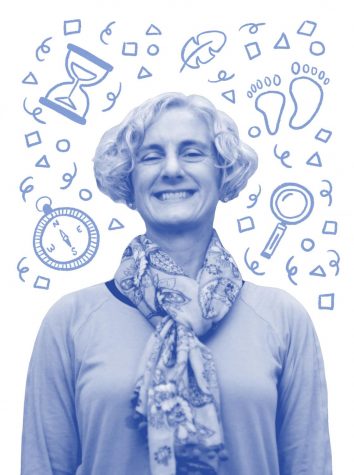
World History and AP Human Geography teacher Kay Petrini got interested in politics and government at a young age. “The conversation that [our family] had around the dinner table was always about history and what was happening politically and that kind of thing,” Petrini said. Petrini studied political science at San Francisco State and went on to work for California’s legislature. She worked as a student teacher at Lowell for two years before getting her teaching credential at the University of San Francisco in 2003. She then taught at Mercy for 14 years before coming back to Lowell. One of the things she values most in her classroom is open-mindedness. “I definitely have my opinions and I don’t want to tell my students what to think. I want to hear what they think,” Petrini said.
What led you to become a teacher?
Good question. Well, I always knew I wanted to be a teacher, going way back. I had a wonderful government teacher, who really got me interested in government and politics. So I studied political science in college. And then, when I got out of college, I went to work for the state legislature. But I always knew, on some level, that I wanted to go to the classroom and be a teacher.
What are the challenges and rewards of teaching?
The challenge is having enough energy because it can be exhausting. The reward for me is when I see a student really grasp a concept, or do really well on a test, or come to me with a story. Something like, “Oh, I was talking to my parents last night and they brought up this issue and I told them that we were discussing it in class.” So when I see students able to apply what they’re learning in my class to the real world, that’s really rewarding.
What’s your impression of Lowell so far?
I think Lowell is a really energetic great place with a lot of wonderful great students. I’m really enjoying it.
Can you describe the importance of your subject in your own words?
I think my subject is critical to helping students understand the world around them and understand the connections; everything that’s happening now can be understood by looking back at what came before. It’s just so important to make those connections, especially given the turbulent times that we’re in with the political situation. [Studying history] really causes a lot of questions to come up and I think that’s a really important thing to be able to do, really ask critical questions throughout your life. To not just accept what people tell you but to really say: “Well now, why is it that way? Does it have to be that way?” I think that’s why it’s important. It really trains students to think and to question.
What’s your favorite unit to teach?
Probably industrialism. I like teaching about industrialism because there are so many parallels to our time. We’re kind of going through the second Industrial Revolution, with all the technology. It’s really fun to draw parallels between those two and make it understandable. I think it helps students understand the first Industrial Revolution when they can relate it to their iPhones and things like that.
How would you describe your teaching style?
I don’t lecture a lot. I like to give students the opportunity to let students figure it out on their own. I tend to be pretty understanding. I try to be pretty relaxed and understand, especially at Lowell, how busy the students are and the pressures you guys are under. I try to have my teaching style take that into account. I try to make it a fun process. History has its reputation of being really boring and dry and so I try to make it fun.
Christian Ferrey, Spanish teacher
by Elyse Foreman
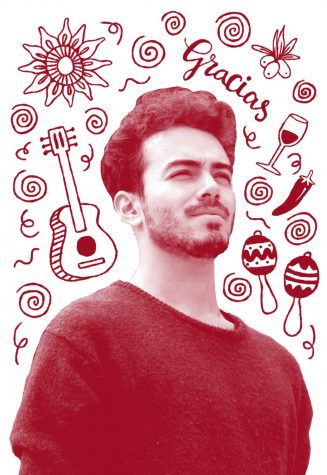
Christian Ferrey is launching into his first full-time position as a teacher this year at Lowell. Last school year, Ferrey was substitute teaching at schools in and around San Francisco and spent time at Lowell. As a result, Principal Andrew Ishibashi offered Ferrey a full-time position as a Spanish teacher, and he is now teaching Spanish 1, Spanish 2 and Spanish 3 honors. In his free time, Ferrey enjoys running, reading and playing Piano.
What led you to become a teacher?
All of last year, I was subbing around the district and in particular at Lowell. I was just trying it out; I wasn’t sure if I wanted to do this for a full-time job or as a career. But I was liking it [more] little by little each day. I think I liked being part of a school environment, being around students. From there, Mr. Ishibashi, he liked what I was doing, and he offered me a position as a Spanish teacher.
What are the challenges and rewards of teaching?
Because I am a new teacher in general, coming up with lesson plans every day is difficult. Especially when you have to teach three separate subjects. [It’s difficult] to keep students engaged, to keep things interesting. The rewards are seeing that the students are learning, and enjoying the material. I think that’s not always achievable, but if you can find that middle ground of learning and also having it fun, then I think that’s great.
What’s your impression of Lowell so far?
I’ve liked it! Actually, my mom works here as an accountant. She’s been working for about five-plus years now at Lowell. I didn’t know anything about it to be honest before I started working here, and she would always tell me nice things about the school. I think the kids here are very dedicated, motivated and respectful, too.
How long have you been on the pathway of becoming a teacher?
Since last year, when I started substituting. I was substituting at pretty much every high school around the city, and Lowell was definitely one of my favorites. So I’m really lucky that I got a job offer here.
Is this is your first year with a full- time teaching job?
Yes. Previously I was a substitute. Right now I am on an emergency credentials plan, which is a teacher that has to go to school while they are teaching to get cleared to be an official official teacher.
What were your favorite subjects in school? Was Spanish one of them?
Spanish was definitely one of them. To me, it was the easiest because I come from a Spanish-speaking family. But just to know more about grammar, as a native speaker who was not raised in a Spanish-speaking country, is interesting. You talk and understand but you don’t necessarily know the rules until a teacher explains why you have to speak in a certain way.
What do you think is the best way to learn Spanish?
I think practicing it. Practicing it in the classroom, practicing outside of the classroom. I told all of the students, “Everybody is going to make a mistake when they’re learning a new language. I don’t think anybody’s going to criticize you for making mistakes, so I really encourage you to participate.” If I’m asking a simple question, don’t be afraid to participate, just answer it. Like, “Oh yeah, the answer is ‘comer,’ or, ‘the answer is dormir.’” That’s what I would take away from it, especially when learning a foreign language, just participation.
What has been the most memorable part of your Lowell experience so far?
My most memorable [experience in Lowell] is probably the department I am in right now. The other teachers and the department head, Mr. Raya, have all been really nice to me and they’ve all been helping me to create lesson plans and giving me advice.
What are some of your passions outside of teaching?
I like to run a lot. I used to run competitively in high school and college. I still run and I play piano from time to time. I also like to read.
Jenna Welch, physical education teacher
by Allison Jou
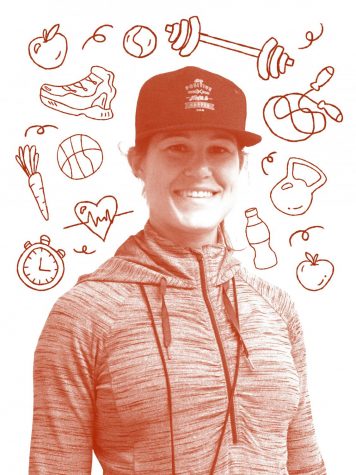
Physical education and yoga teacher Jenna Welch moved from Missouri to California to pursue her Master’s degree and work as a strength and conditioning coach for ten years. She spent eight of those years at UC Berkeley with various athletic teams, specifically baseball, men’s rowing, and women’s tennis as her lead sports. Later on, she moved back to Missouri for three years with her husband, where she stayed more in the private sector and worked with athletes of all ages and levels of experience. She came back to California to teach physical education at a middle school in Fairfield for a year and decided to join the Lowell PE department.
What did you do before coming to Lowell?
This is actually my second year teaching. At my previous career, I was a strength conditioning coach. For the ten years, I worked as a coach, eight of them I spent at UC Berkeley, working with the different athletic teams there. I finished with baseball, men’s rowing and women’s tennis as the lead sports that I was in charge of. Then I moved away with my husband back home to Missouri and did more with the private sector where I worked with anyone from youth to professional athletes. I taught at a middle school in Fairfield after my time as a conditioning coach.
What led you to pursue teaching PE?
When I changed into the private sector and worked with younger athletes, I realized that I wanted to work with the younger population, where I could kind of reach them sooner and get not just athletes, but also nonathletes active, doing more healthy and physical activities before college.
What were some challenges and rewards of teaching PE?
I think the numbers. I had classes of over 40 students. To have that mass of students in one class and times that by five, six classes, it’s hard to really reach every student and really hard to develop a relationship with every student, because I have so many. My favorite part of teaching PE is the fact that I get to share and pass on my knowledge and passion for physical activity and fitness to my students. Fitness and health have always been a big part of my life, and I hope my students will make it part of theirs too.
Do you have a favorite moment as a teacher?
I think it’s that light going on in the students’ eyes. Also, when you start teaching, you don’t know the student and, as the year goes on, you begin to develop this relationship with the student. You see them in the hallways and you say hi, and there’s that teacher-student relationship that gets developed. And it goes into the next year. Although I’m new in teaching, I’ve had that at my other job. I constantly saw them and saw them grow, and I saw what they can do. I worked in baseball at UC Berkeley, and I have some athletes. So it’s being proud to see the people that you used to work with–athletes and students–succeed.
What’s your favorite sport to teach?
As much as I love soccer, it’s fitness and weight training, because I think it’s applicable to everybody. Once you’re done with high school or college, not everybody will go out and join a soccer league or a basketball league. I think just learning how to stay fit and stay active the rest of your life, whether that’s yoga or swimming or whatever it is that they enjoy–I think developing that fitness, weight training and those different avenues of physical activity and fitness–are reasons why I enjoy it so much.
Stephen Hardee, JROTC teacher
by Lee Wilcox
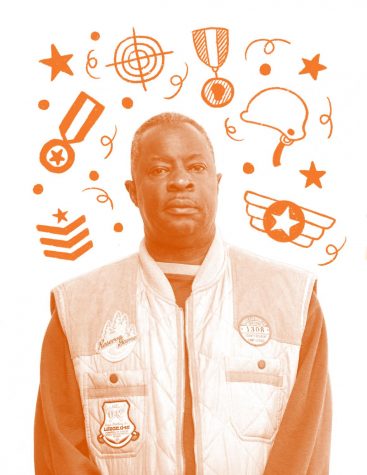
Originally from Tampa, Florida, JROTC teacher Stephen Hardee was in JROTC himself when he was in high school. He spent much of his career in the military. After he retired, it was the memory of his own JROTC mentor and the suggestion of his colonel that inspired him to pursue becoming a JROTC educator. Before coming to Lowell, Hardee taught at Galileo.
What led you to become a teacher? Did you always want to be one?
Actually, I did not have a clue if I wanted to be a teacher or not. I must tell you that I was in ROTC about 40-something years ago. I was a four-year cadet ROTC and then, obviously, I joined the military. Once I retired from the military, I was standing in line at my retirement service and my colonel walked up to me and said, “What are you gonna do with your life?” I didn’t have a clue what I wanted to do. He said, “Have you thought about becoming a teacher, a JROTC teacher?” And I said, “No, I haven’t.” And that’s when the light went on in my head. I was an ROTC cadet in high school for four years, and I thought about the guy that mentored me in that program. At that point, I said, “Yeah, let me take a look at JROTC.”
Where was your first teaching job?
My first high school was in Northridge California, where I stayed at for five years.
What are the challenges and rewards of teaching?
Well, the challenge is trying to figure out how to get kids active, and I think I’ve been successful at doing that. I was at Galileo for 16 years, and I had some great kids. I’ve met a couple here recently, and have them be like, “Hey Sarge, I’m a doctor,” and “Hey Sarge, I own my own business” and “Hey Sarge, I’m doing this,” so that’s been very rewarding. In fact, I think I could write a book on JROTC and the things I’ve learned since I’ve been in the school district.
What’s your impression of Lowell so far?
My impression so far has been great. I’m a very social type of person and I don’t know if they’ve received me yet, but that’s what I’m doing right now, working with my ROTC kids talking about social skills. I like to be up close and up personal, see where your heart is at, see where you’re at. And I understand this is an academic school, and like I tell them, those grades will do you good in the future but you have to have social skills–be able to converse and think on your feet. My impression of Lowell right now is there’s some great kids, and I can tell they’re not used to seeing a tall black guy walking around campus, but it’s been a great experience here so far and I think it’s going to be a wonderful experience.
Do you have any more thoughts on grades?
I was a C-average student in High School, but in college, I was a straight-A student, so therefore I believe that grades don’t define who you are.
Do you think there are any additional challenges to teaching JROTC as opposed to traditional PE?
No. I was Master of Fitness in the military, so I kind of rate them in the same way, on the same level. I just have to get the kids out there to exercise; that’s the biggest challenge. You know, this generation, most kids just like to play games on the computer. I believe in being in shape.
Do you think JROTC provides any benefits that other forms of education do not?
There’s a lot of benefit. It teaches you leadership. You know, you can’t run a company if you don’t know what six people are doing.
What do you like most about teaching JROTC?
I definitely enjoy–I love–motivating young people to become better citizens.
What’s one of your passions outside of teaching?
I love to play golf.
Louis Grice, math teacher
by Elyse Foreman
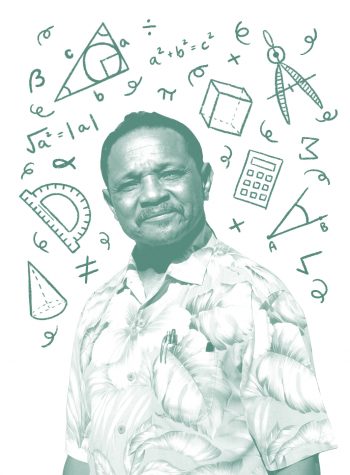
Lowell math teacher Louis Grice is embarking on his 40th year of teaching this year, but, in college, he didn’t plan on becoming a high school teacher. In fact, when his college advisor asked him if he wanted to major in political science “with or without teaching credentials,” Grice replied “with” because he was distracted by thoughts of what to order for lunch and a burger “with” everything. Despite this, Grice has had what he calls a “full run” in teaching, and has taught around the United States, including Los Angeles, Memphis and Berkeley. Certified to teach social sciences, he has taught U.S. history, geography and educational psychology. He has also done administrative work. Outside of school, Grice is an avid golfer and an activist for social issues.
What led you to become a teacher?
It was by accident. I wasn’t thinking about going into the teaching profession, and my advisor asked what I was willing to major in and I said political science and the advisor asked me, “With or without?” I said, “With.” At the time I was thinking about something to eat. Whether or not I would order a hamburger with or without the fillings, and I wanted it fully loaded, so I said “with.” I was starved [during] my first time away from home. Later I learned that it was with certification to teach. So my second year I ended up taking teacher certification courses and I passed the test.
What kept you on track to become a teacher?
What kept me on that track, to be honest with you, is the three-month summers off! But really,. I started to see that I have a connection to young people, and it wasn’t a struggle for me–-I didn’t get bent out of shape working with young people as I see some people have a disdain for them.
What are the challenges and rewards of teaching?
I think that the challenge is to be able to, everyday, face and be ready to face the students. And it’s a challenge to create this amazing connection. That’s the challenge. If you meet the challenge, the reward is this amazing confirmation in seeing students grow from where they’ve started. It’s unlimited how much they really really grow.
What’s your impression of Lowell so far?
Lowell takes me back to when I was in high school when everybody was being accountable, they were being engaged, learning and staying connected. The administrators, the teachers, the parents. It’s a really energized setting to be connected back with. I’m glad that my career has led me to Lowell high school. I’m excited in the morning when I arrive here and I’m excited in the afternoon when I leave.
How long have you been teaching?
I started teaching in about 1978, so since that time I have had a full run in teaching.
What schools other than Lowell have you taught at?
I taught at many in Los Angeles and Memphis and Berkeley. I think that the schools that stood out have been Samuel Gompers Middle School and George Washington Preparatory High School in Los Angeles, Berkeley High school in Berkeley and now Lowell.
What was your favorite subject when you were in school?
In high school, it was always music. I was in the band and I played the tuba and baritone horn. In college, I think I liked political geography. I always liked to travel; when I was on a plane I was just in my own mind. My other favorite subject was mathematics. Math provides me with a way to provide for my family and to stay engaged in the world and world events. So I would say math is one of my favorite subjects.
Have you taught other subjects?
Yeah, I’m certified in social sciences, so I’ve taught geography, U.S. history, and educational psychology. Math is my area of expertise. I’ve done some administrative work as well.
What’s your best teaching memory?
I think my most memorable moment has been when students who thought they never would get it finally get it. They reach heights that they or their parents never thought they would reach. Those are my memorable moments
What are your passions outside of teaching?
I love golfing.
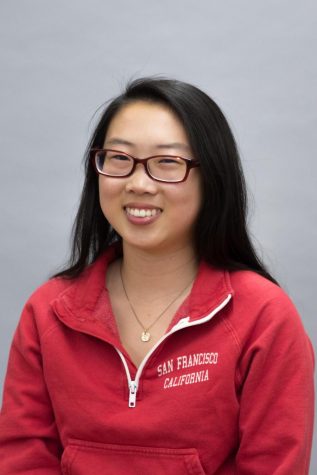
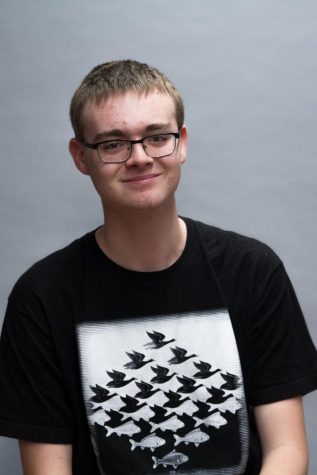
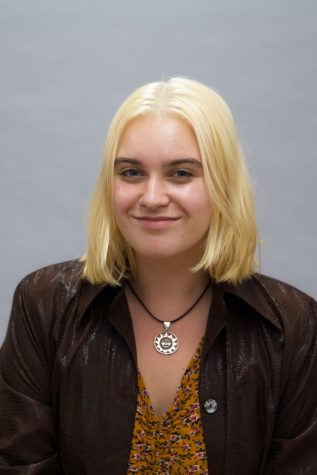
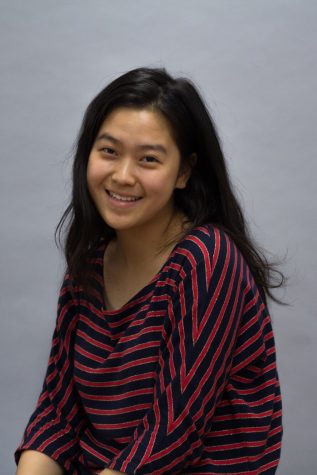
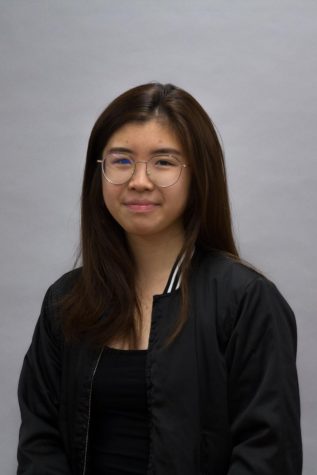
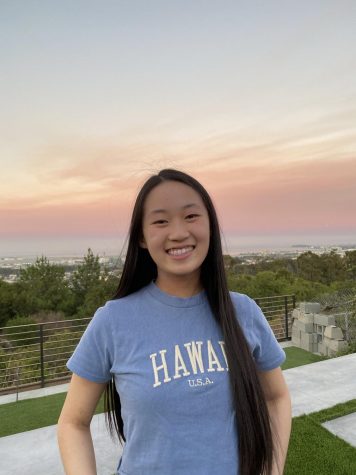
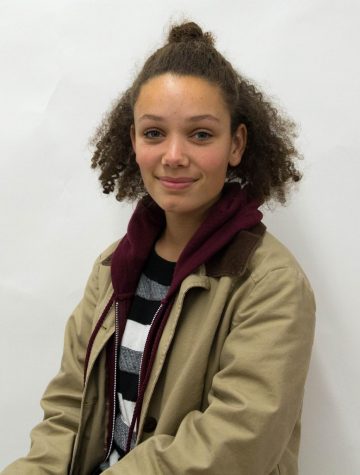
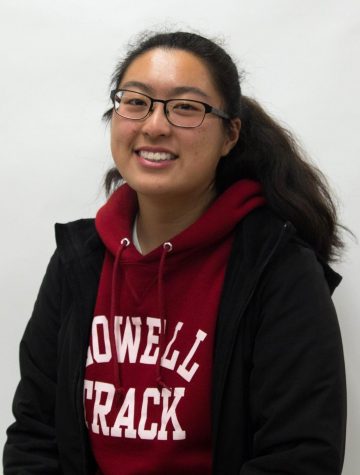
Find me taking photos, pole vaulting, and avoiding sand :)



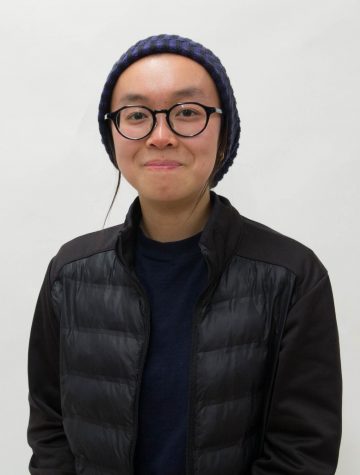

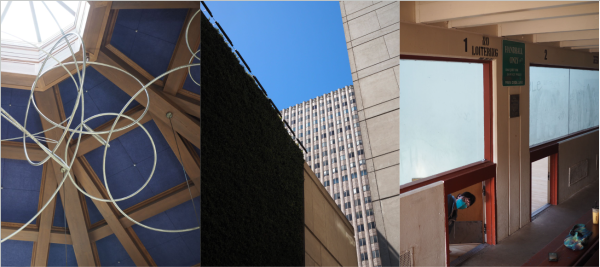
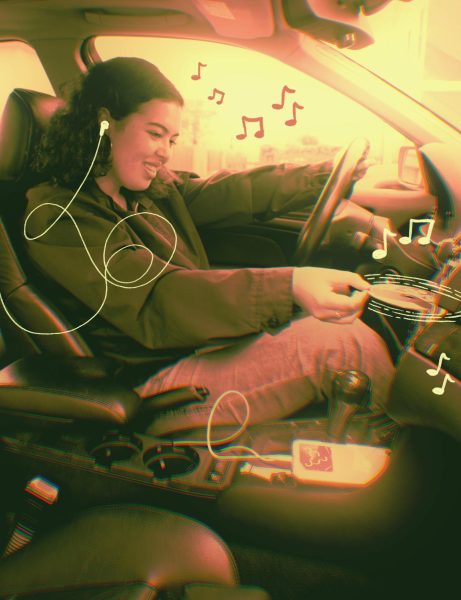
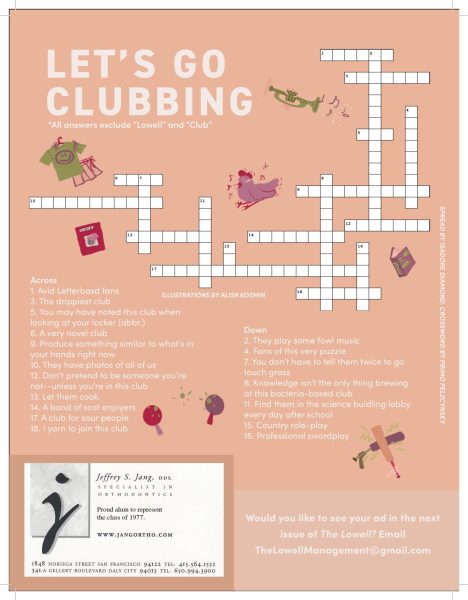




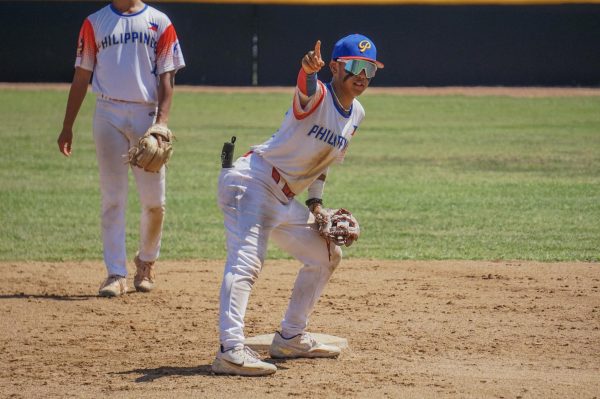
Mark C. Schoeller • Nov 30, 2018 at 6:43 pm
Lowell editor ’85. So proud of the quality.